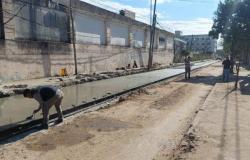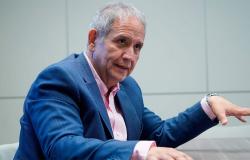This column was written by guest columnist Esteban Villegas.
I want to debut in this space of the La Silla Vacía Expert Network by telling you that this week, Banca de las Oportunidades (BDO), headed by its director, Paola Arias, presented the most recent data and progress in terms of financial inclusion in Colombia for the year 2023.
The BDO has become one of the main sources of information to understand how Colombians consume financial services and to project what is needed in Colombia. Here are some comments about what these data mean for the country.
“The task in access is done,” said Paola Arias in the presentation of these data. This alludes to an amazing fact: 94.6% of the Colombian population is banked. That is, it has at least one financial product. The predominant one is the traditional savings account. However, low-amount deposits, where entities such as Nequi, Daviplata or Movii are located, already have 27.5 million users.
The most impressive thing about the low-amount deposits data is that from 2022 to 2023, 4 million people obtained a new digital wallet. This is closely related to the fact that digital wallets have been adding more and more services, such as cards, smart pockets, credits and more.
After the pandemic, the government of former President Iván Duque announced that the country had achieved 100% coverage in the country, something that is true, but has its complications. For example, according to the BDO report, on average, Colombians have a banking correspondent less than 1 km away.
Although the number of banking correspondents, card machines and QR code payments have increased in Colombia, bringing more and more options to Colombians throughout the country, it is still worrying that there continues to be a practically immovable gap between financial services in areas rural and urban areas.
The positive thing is that there are many entities working precisely with this approach, just to give some examples: UsAid, United Nations Development Program (UNDP), Banco Agrario, Agrapp, BDO itself, or Bancolombia with its Bancolombia account at the Hand.
The future of financial inclusion is through technology. I say this because, despite these advances and challenges, there is one piece of information that seems to me to be the most important and the one that could provide real financial coverage of 100%.
In 2019, only 23% of transactions were made through electronic means, but in 2023 this figure rose to 63%. Added to this data is that the majority of transactions in Colombia are made through electronic means and physical channels are on the decline.
Furthermore, it is very important that more and more people use their card to make payments and not only to withdraw money from their cash accounts. The key to success in the digital financial sector is that: there is a real incentive for people not to withdraw their money and keep it in their accounts or use it digitally. In this way it will be safer for users and it will be possible to discourage the use of cash, which is closely related to informality and illegal economies.
However, the State and entities will have to do a lot on their part. It must be guaranteed that people and companies can transfer money between banks and digital wallets immediately and securely and that user information is at their service, not that of financial institutions.
The Bank of the Republic will bring to light its immediate payment system in 2025 and it must be a channel that guarantees that we can all be part of it. It is essential to eliminate any barriers and not fall into the concept of “closed gardens”. With that we can practically eliminate cash and there will no longer be an excuse not to transfer to your friend when he pays the bill and it is from a different entity than yours.
Although traditional banking has made great efforts with applications like Transfiya, there are still obstacles for users who do not know this type of transactions. The key is for the services to be intuitive and immediate, that way BDO data will continue to be increasingly positive.
Esteban Villegas
He is a business administrator at Cesa and the CEO and co-founder of Zulu, an international payments company for companies that was born in 2021. He is also the youngest member of the Board of Directors of Colombia Fintech. Before creating this company, he worked at UBS and another fintech called Treinta.







